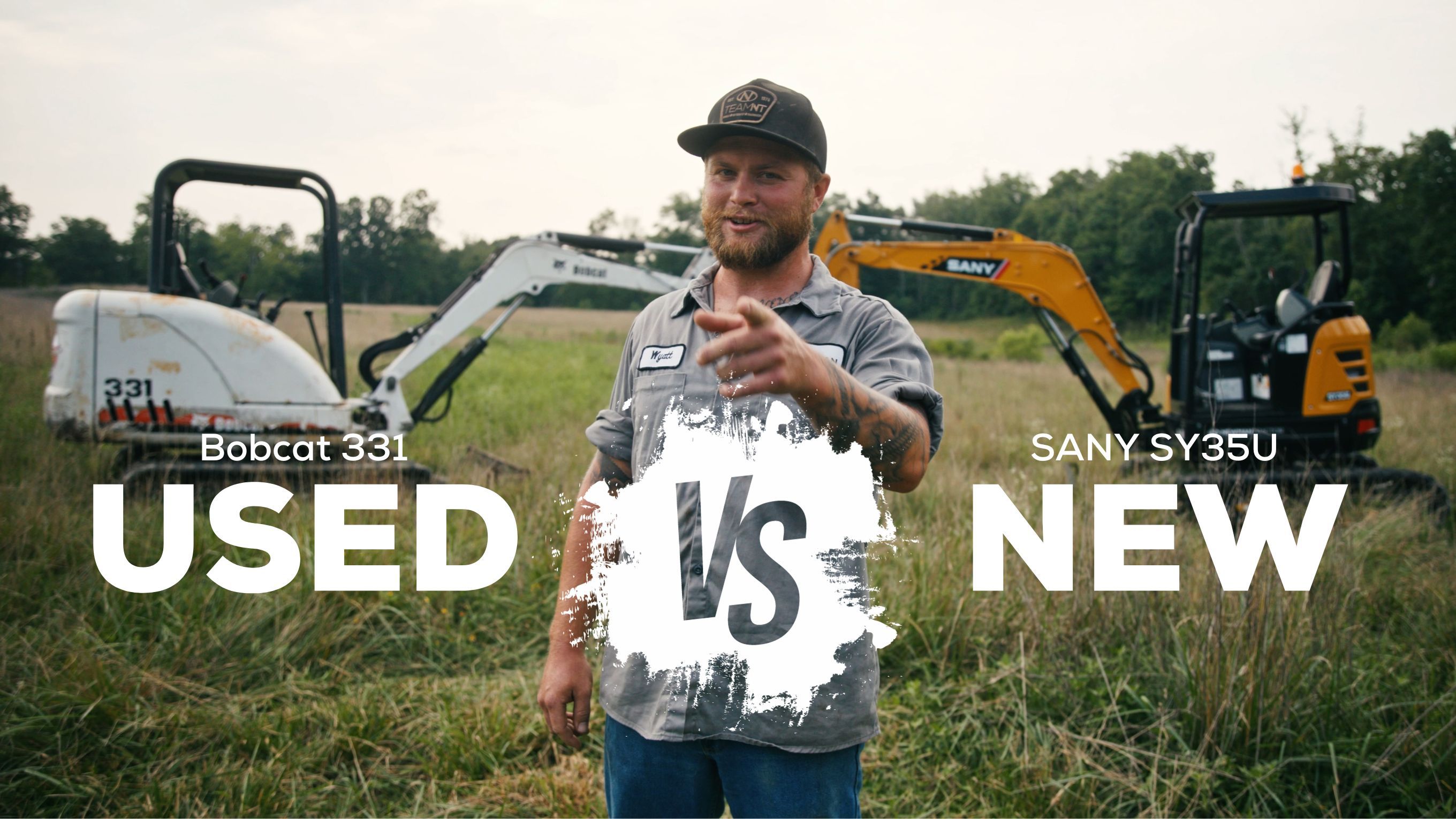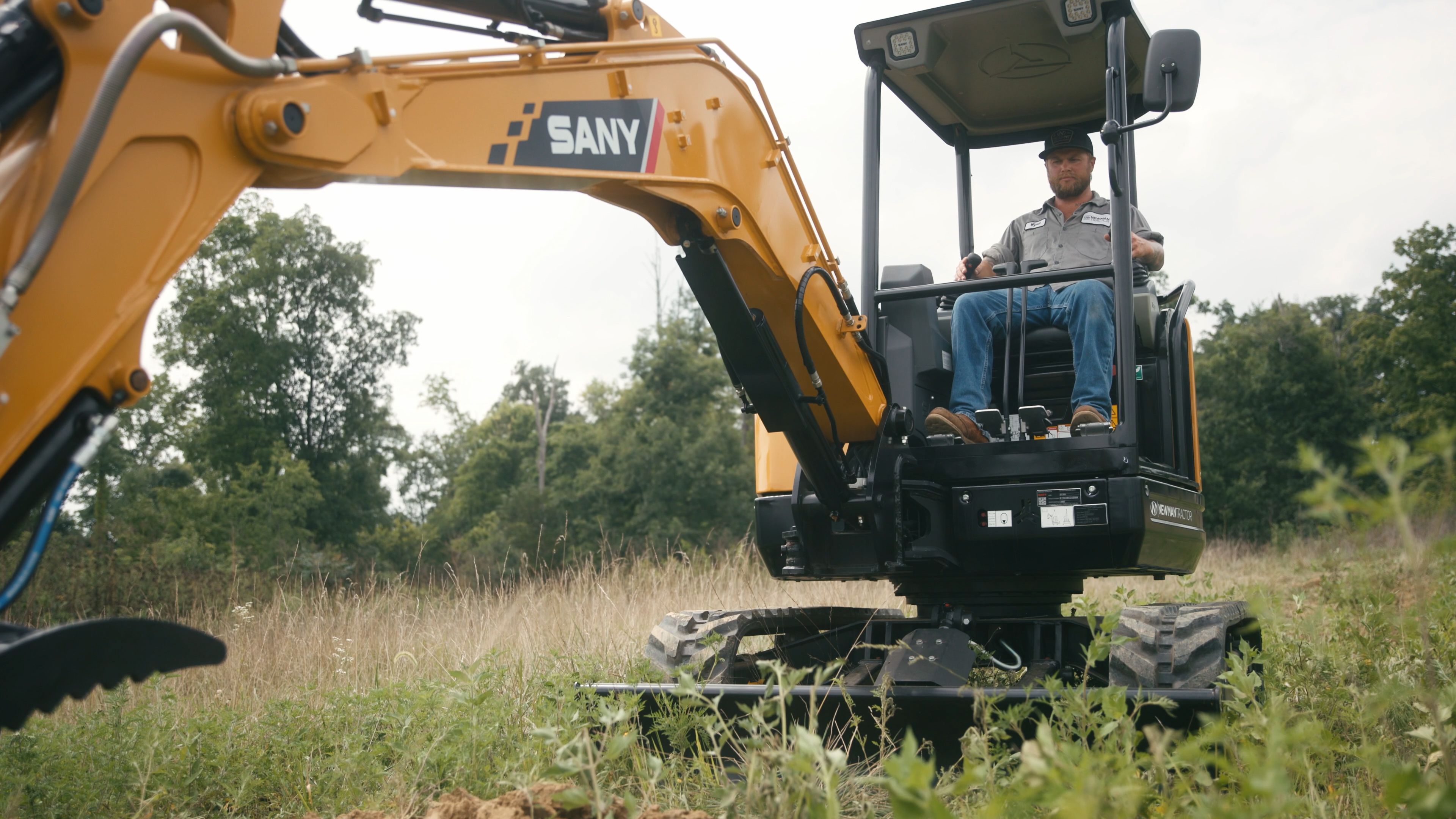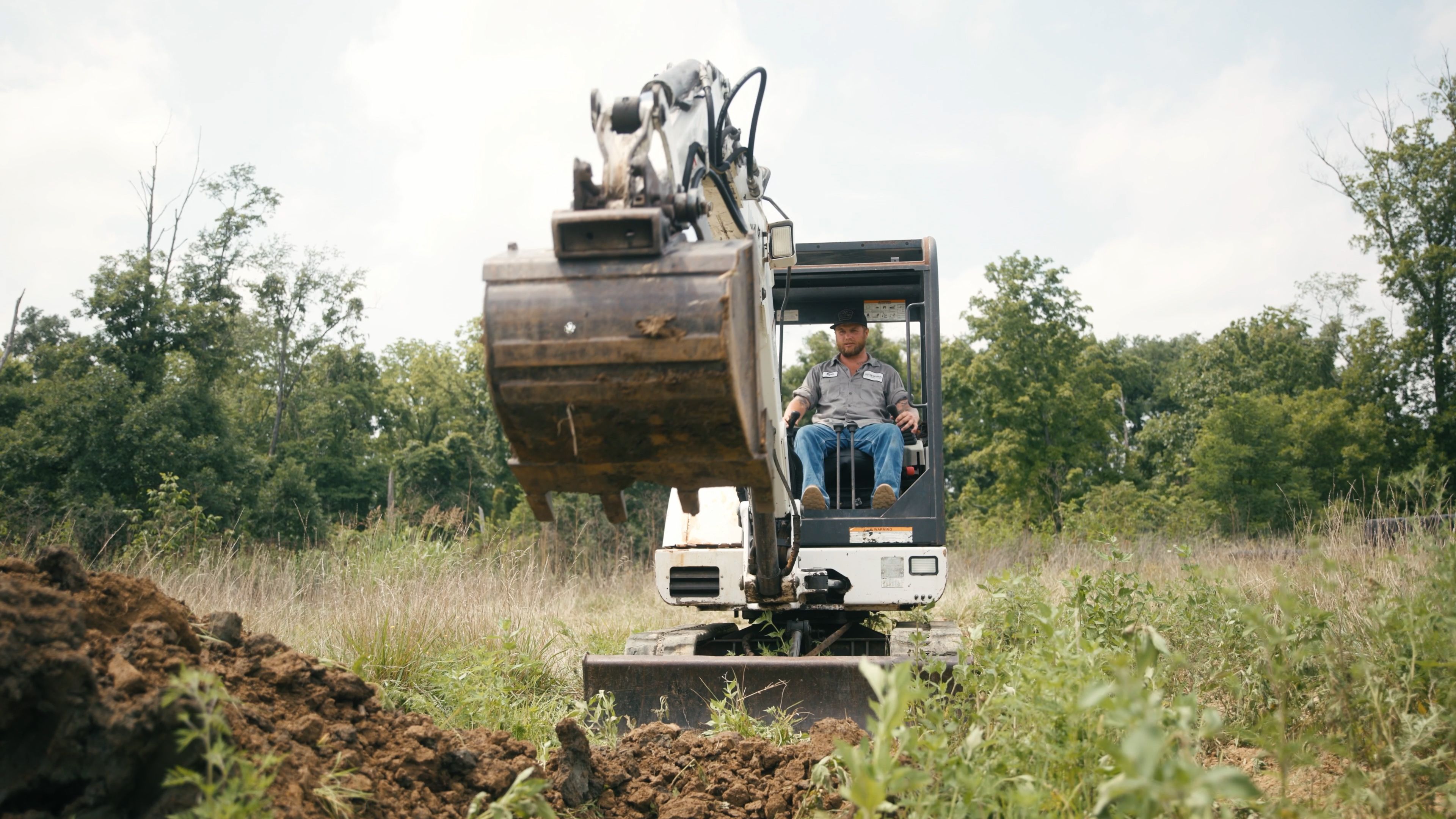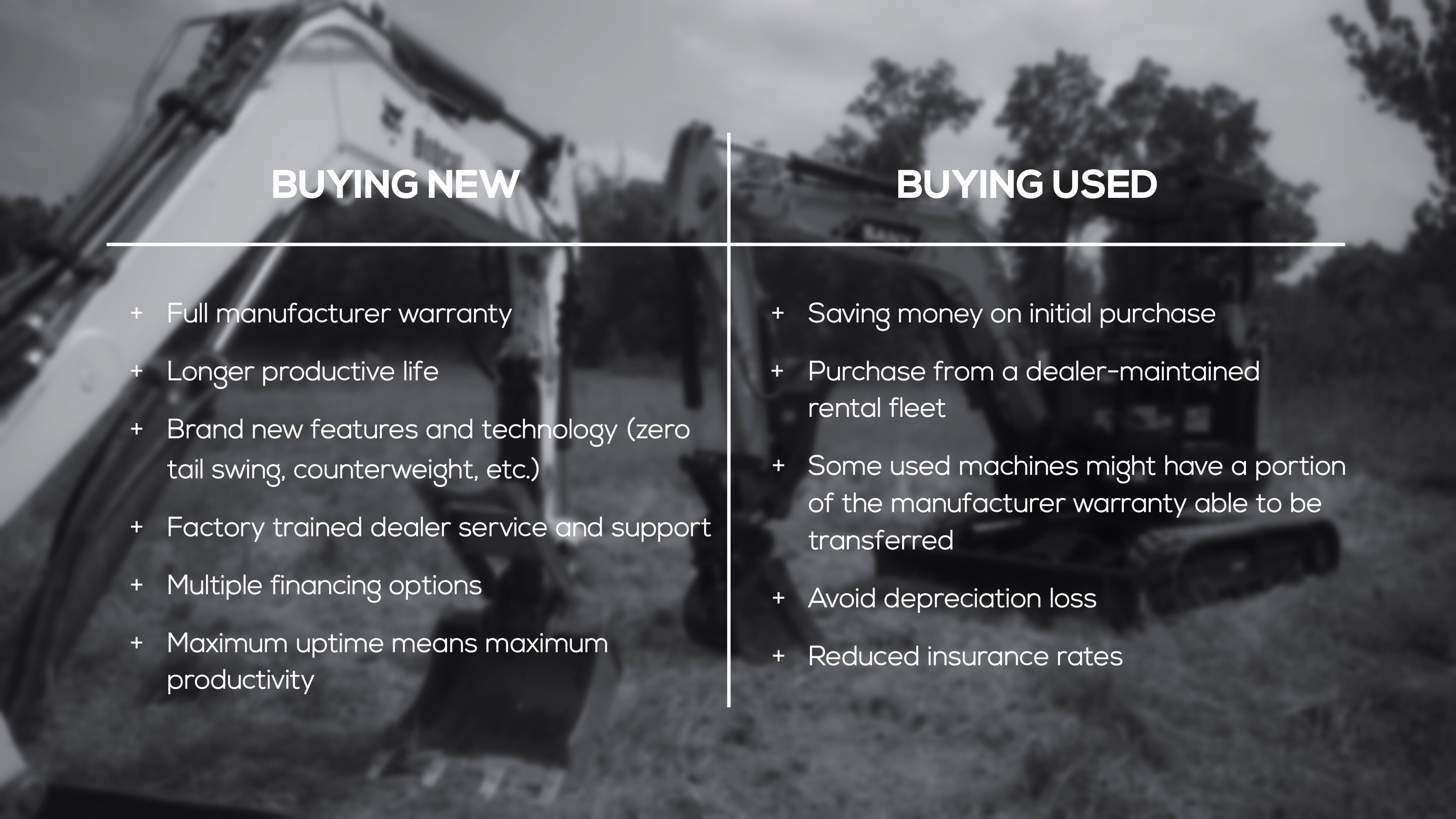New Vs. Used Excavators: Should I Buy New or Used Heavy Equipment?

Investing in heavy equipment is a big decision and it’s one that can greatly impact your business or construction projects. One of the first considerations you'll face is whether to buy new or used machinery. Both options have their advantages and drawbacks, and making the right choice requires careful consideration.
In this blog, we'll explore the key factors you’ll want to evaluate when buying new vs. used heavy equipment to help you make an informed decision, as well as talk through our latest video that explains the benefits of both.
The Case for Buying New

1. Reliability and Warranty: New equipment comes with manufacturer warranties that provide peace of mind. You're covered in case of unexpected breakdowns or defects, reducing downtime and repair costs at the standard rate of that OEM.
2. Cutting-Edge Technology: Newer models often feature the latest technological advancements, such as improved fuel efficiency, better safety features, and enhanced performance. This can lead to increased productivity and savings in the long run, plus increased comfort for the operator.
3. Low Maintenance: New machines typically require minimal maintenance in the initial years, saving you time and money on parts and service costs. Older equipment, in contrast, tends to break down more quickly with a lower likelihood of parts being readily available.
4. Higher Resale Value: When the time comes to upgrade, new equipment can fetch a better resale value than older machines, which can offset the initial higher cost when you’re ready to sell.
To read more about what to expect when buying new equipment through Ironheads Heavy Equipment, read the blog here: A Seamless Equipment Purchasing Journey
1. Cost Savings: The primary advantage of purchasing used heavy equipment is upfront cost savings. Used machinery is significantly cheaper than its new counterparts, making it attractive for startups and budget-conscious buyers.
2. Immediate Availability: Used equipment is readily available in the market, allowing you to acquire the machinery you need promptly without waiting for manufacturing lead times.
3. Less Depreciation: Used equipment has already experienced the steepest part of its depreciation curve in its lifetime, so you're less likely to incur significant losses in resale value.
4. Lower Insurance Costs: Insuring used equipment is typically less expensive than insuring new machinery. This can lead to cost savings over time.

To read more about tips and tricks for buying used heavy equipment, check out the blog here: Used Heavy Equipment Tips and Tricks
Or download our used equipment guidebook here: The Ultimate Used Equipment Guidebook

New Vs. Used Video
To learn more about the pros of buying new vs. Used heavy equipment, check out our latest video where shop foreman Wyatt Dupree takes us through a hands-on comparison between a Bobcat and a SANY, shedding light on the eternal question of whether to invest in new or used heavy equipment.
The decision to buy new or used heavy equipment ultimately depends on your unique circumstances and needs. Elements such as use case, business standing, financial situation, and the ultimate goal for your machine play a part in determining which route is better suited for you.
If you prioritize reliability, the latest technology, ease of serviceability, and are willing to make a larger upfront investment, new equipment may be the way to go. On the other hand, if cost savings are your primary concern, used machinery can be a smart choice.
Regardless of your decision, it's essential to thoroughly research the specific make and model you're interested in, inspect the equipment carefully, and consider factors such as maintenance history, warranty, and expected usage. By weighing the pros and cons of both options, you can make an informed choice that aligns with your goals and budget, ultimately putting you in the right seat!
Interested in renting heavy equipment instead? Check out the rental blog here!
OR Browse Rental Options
